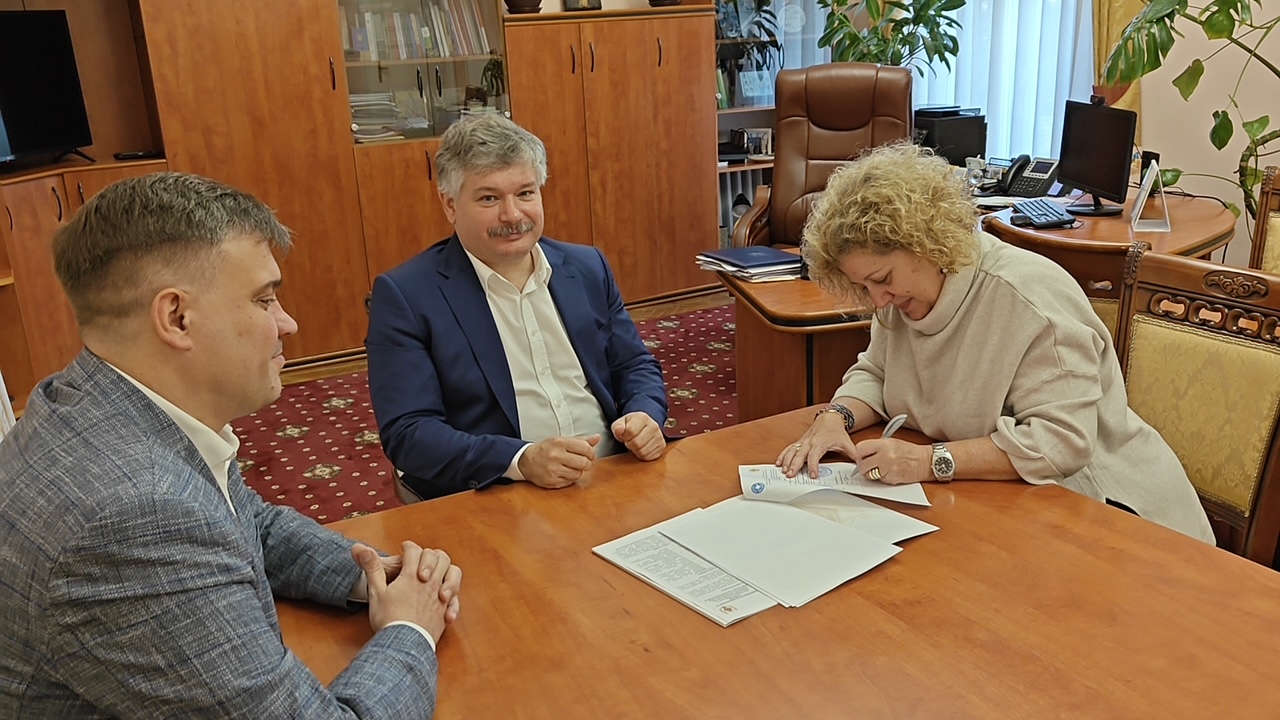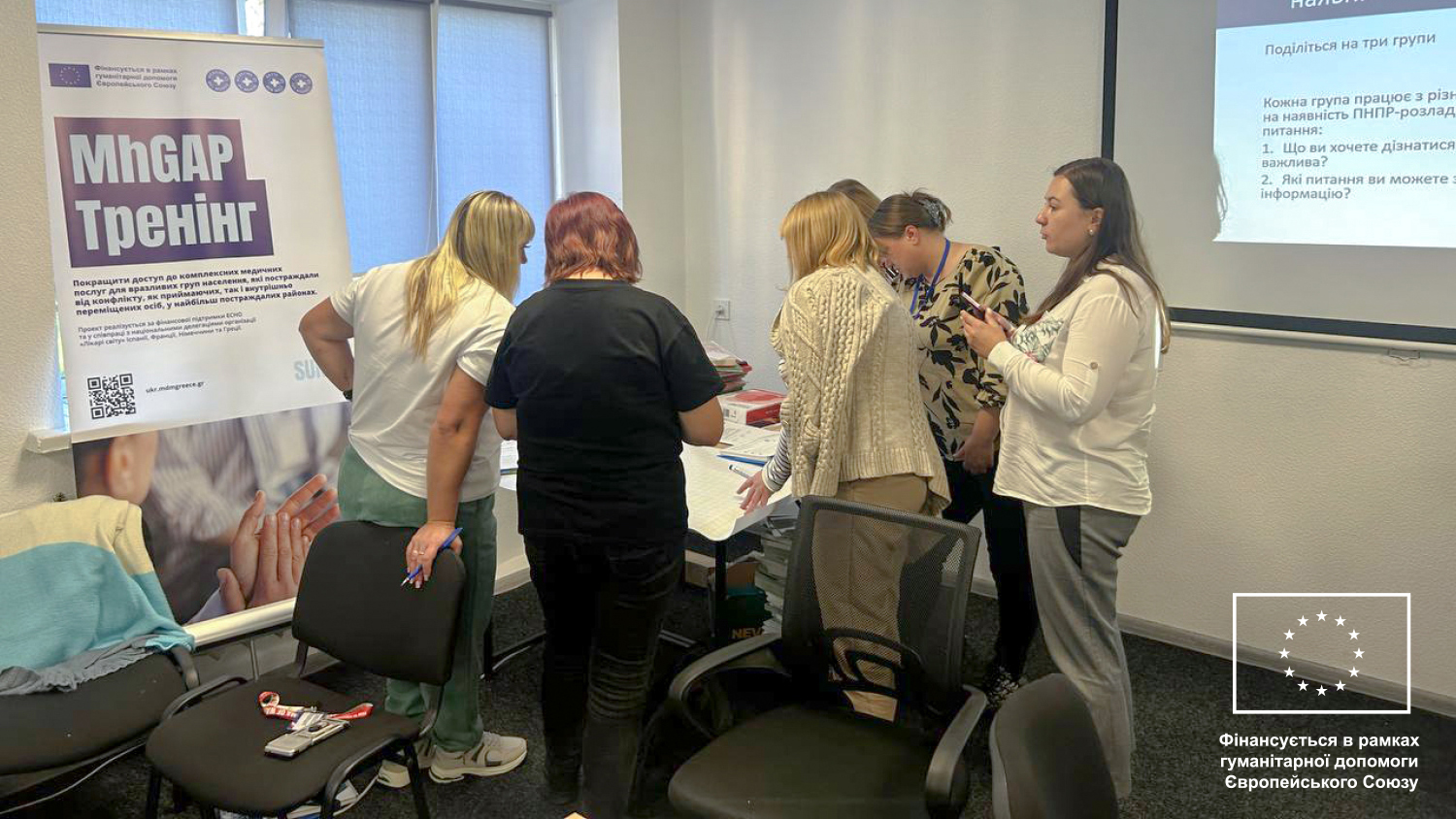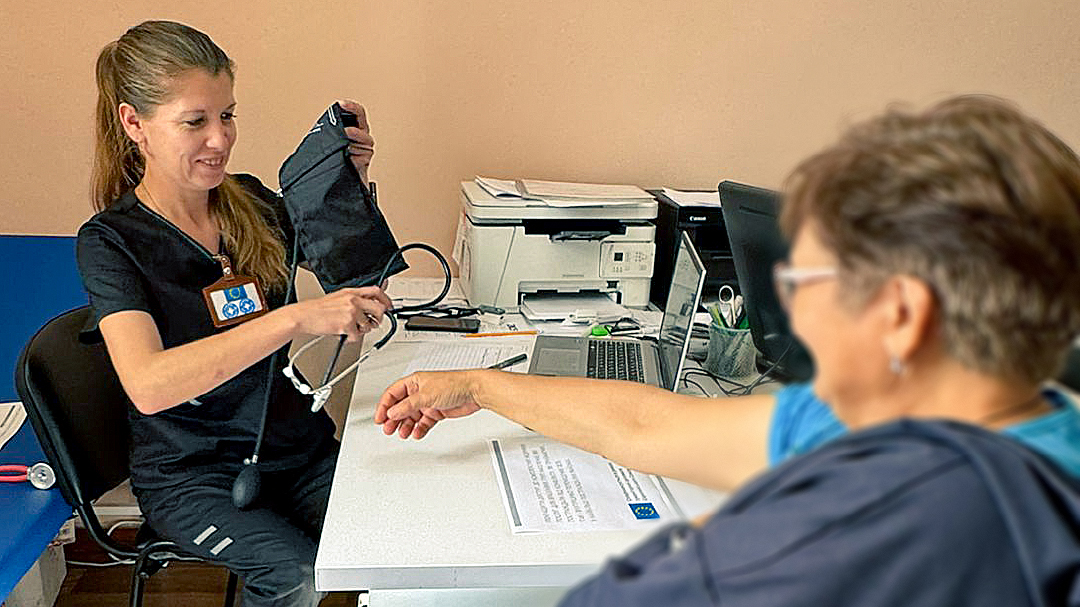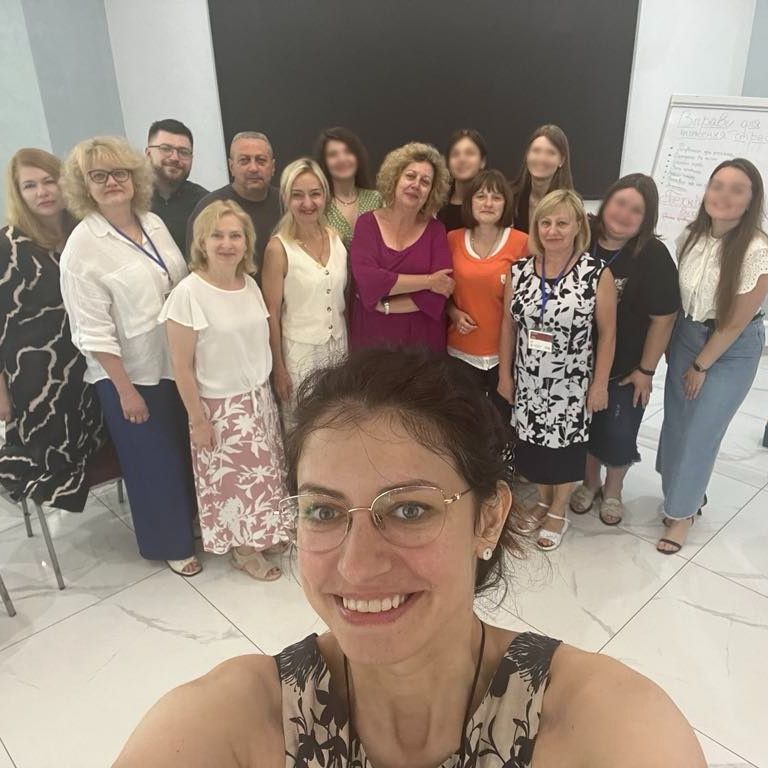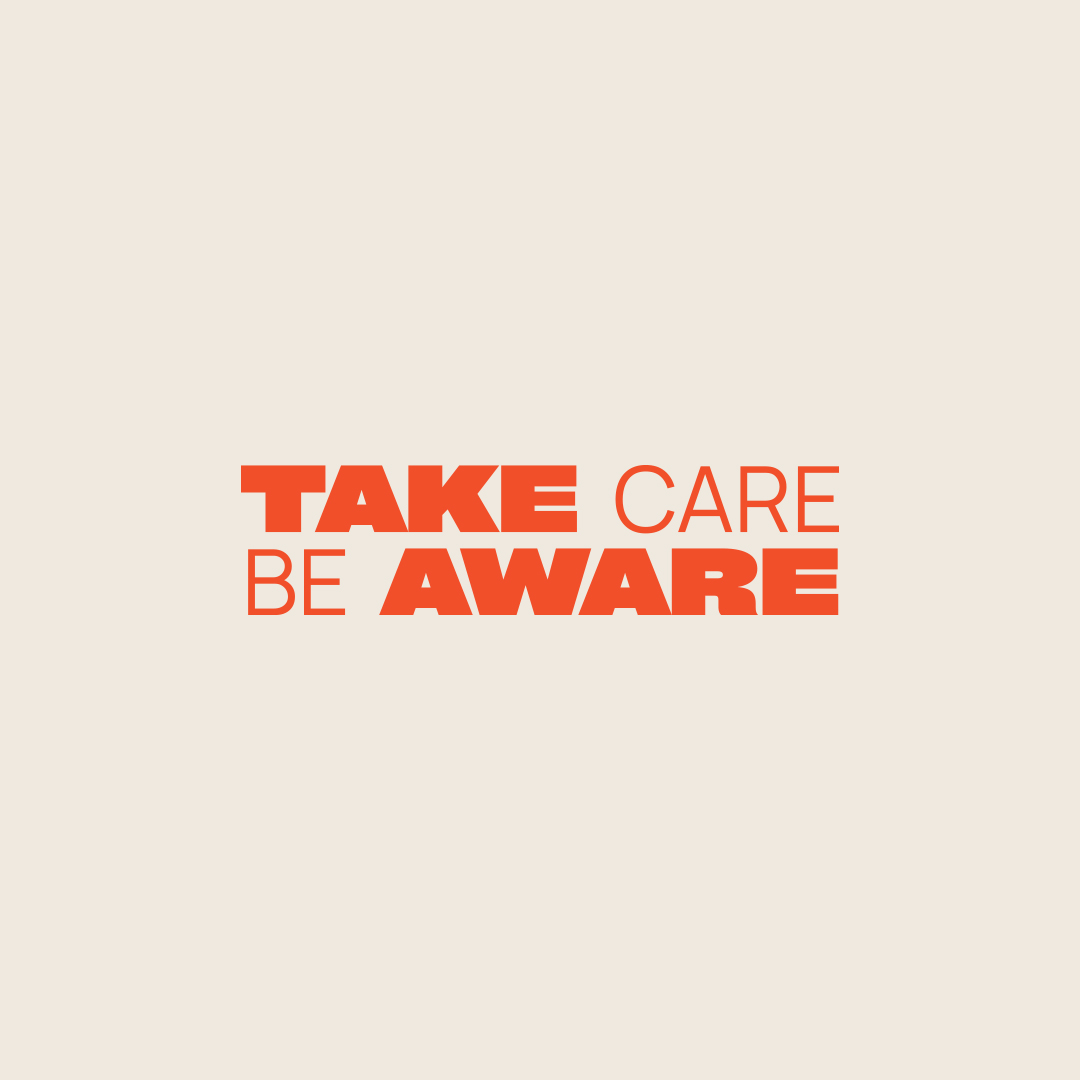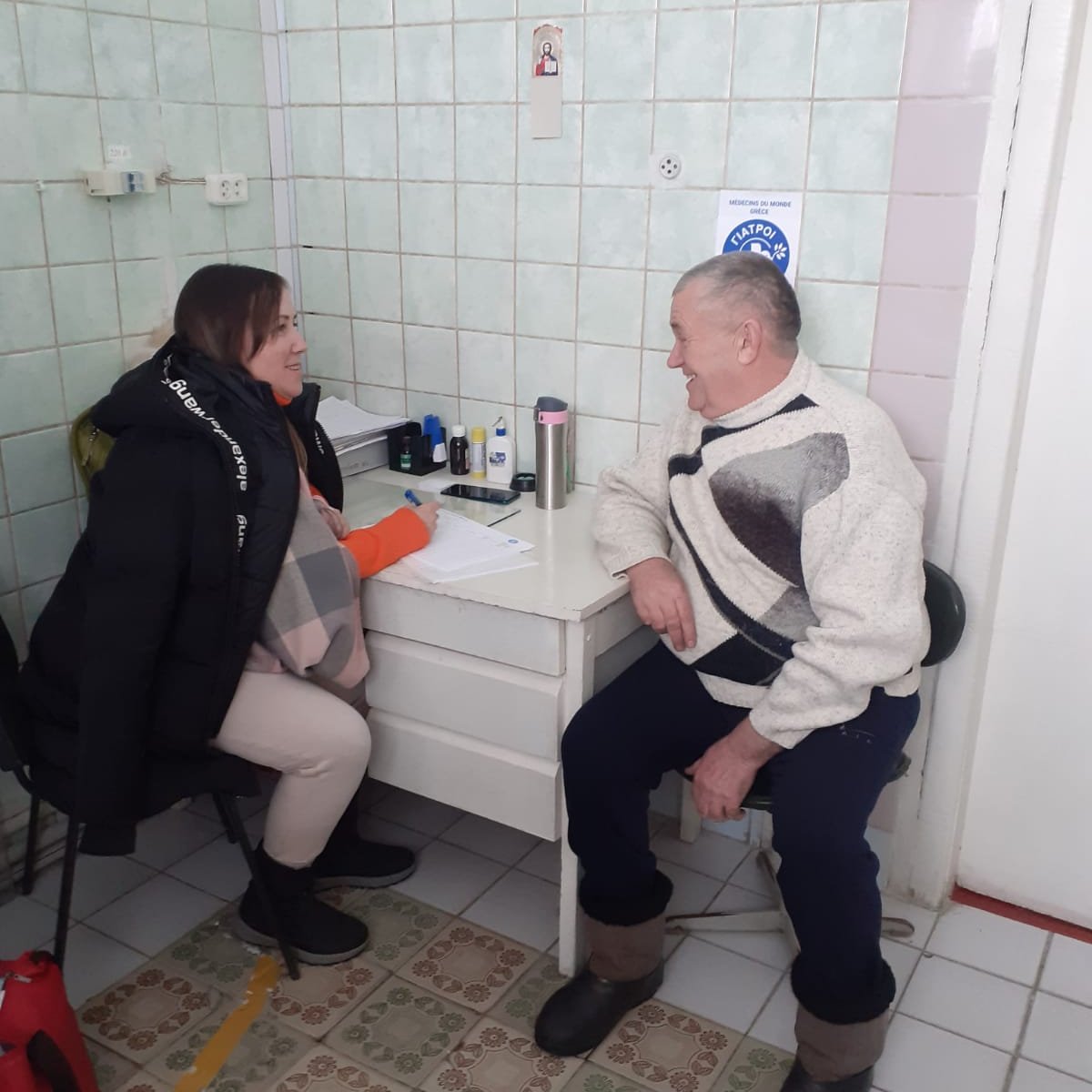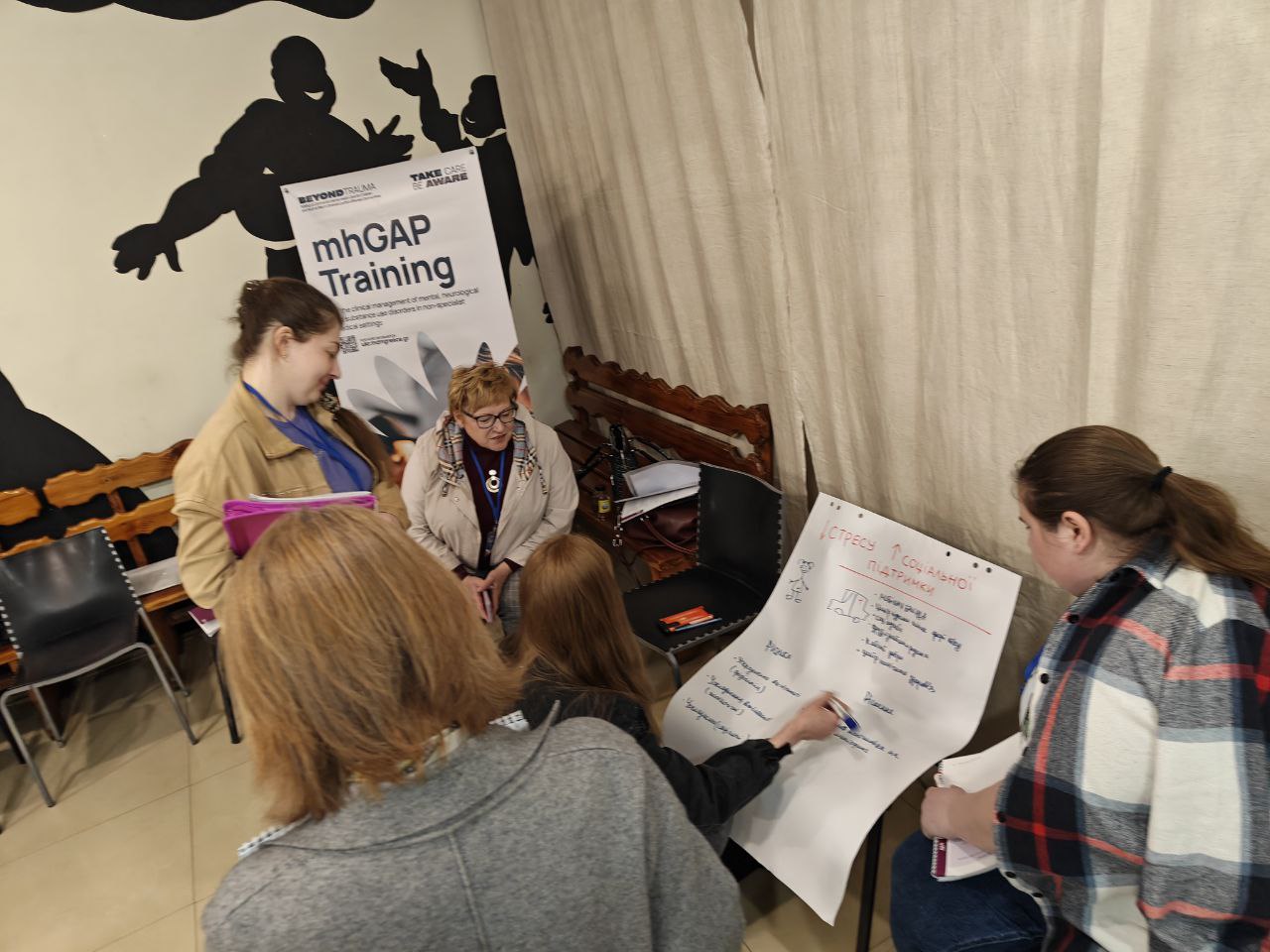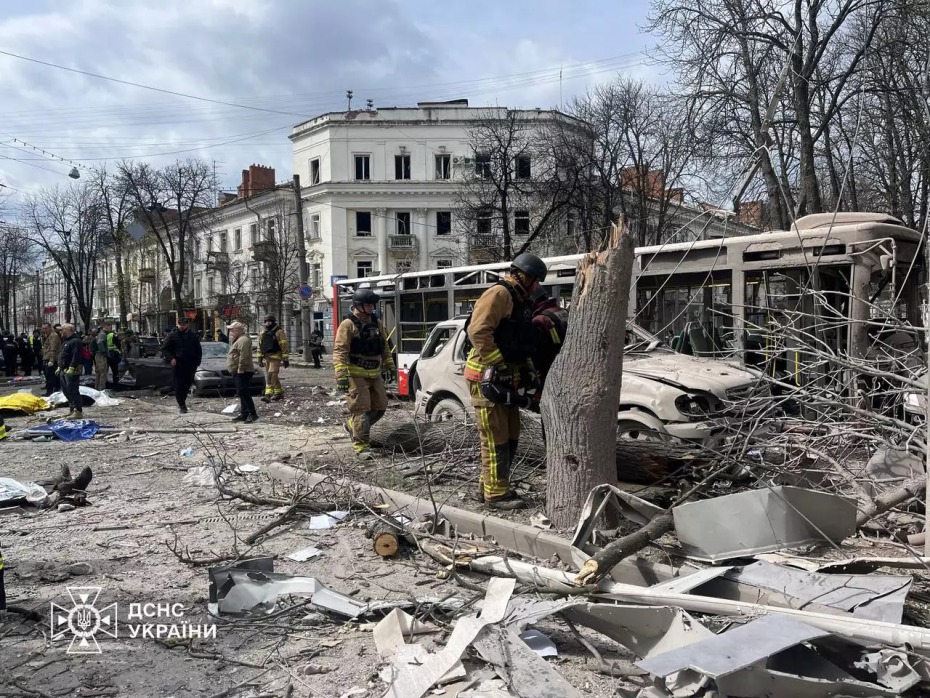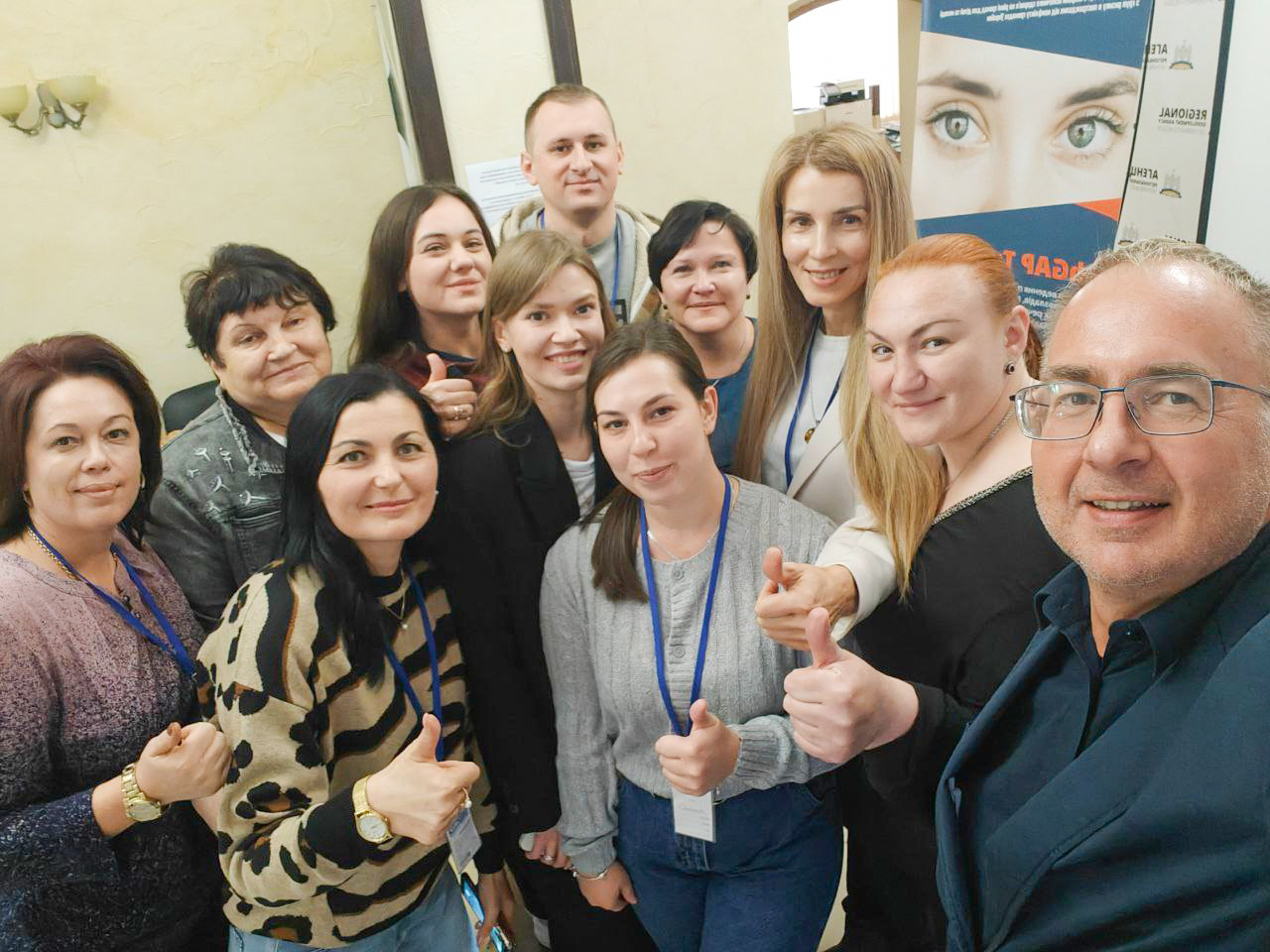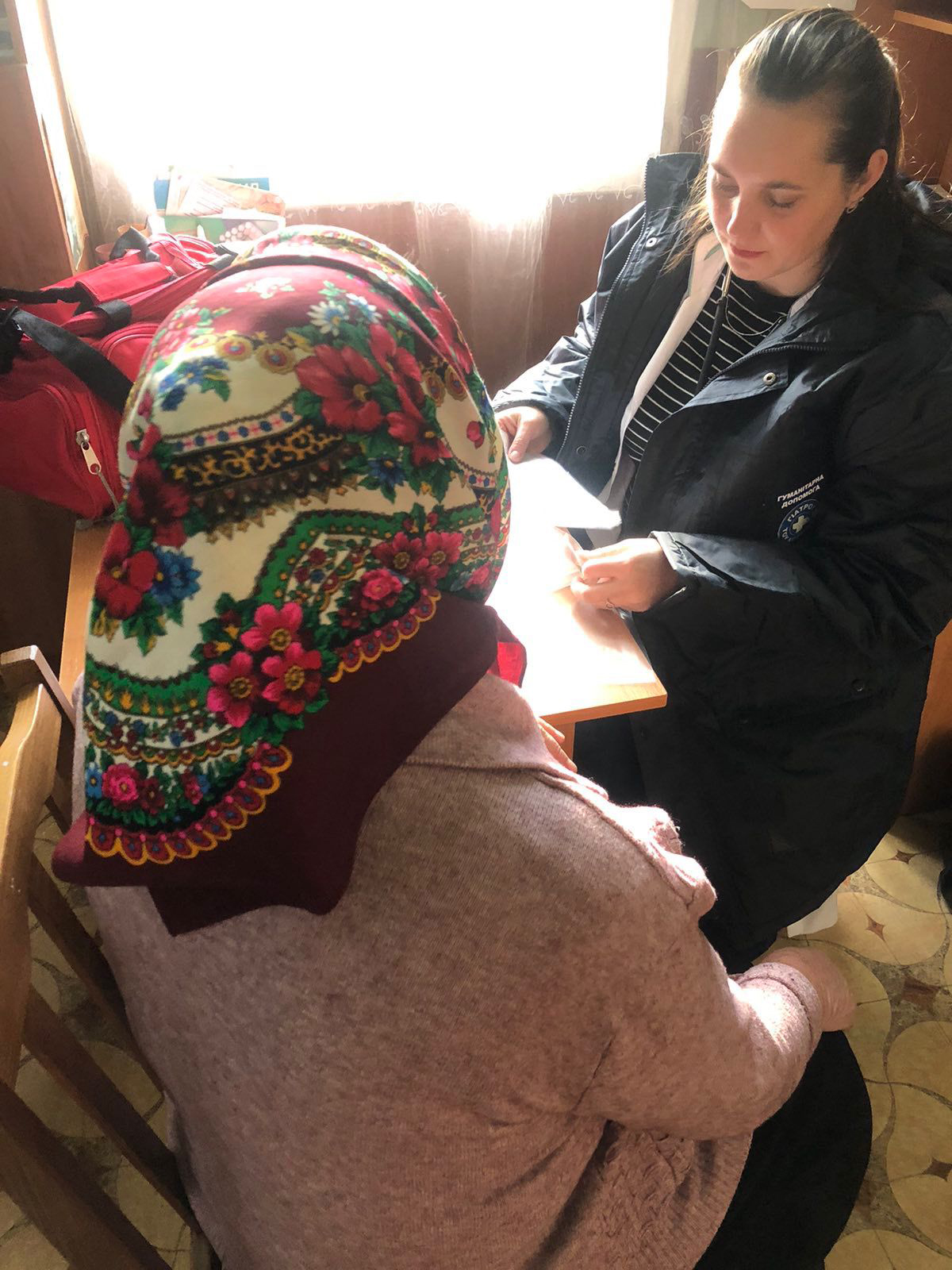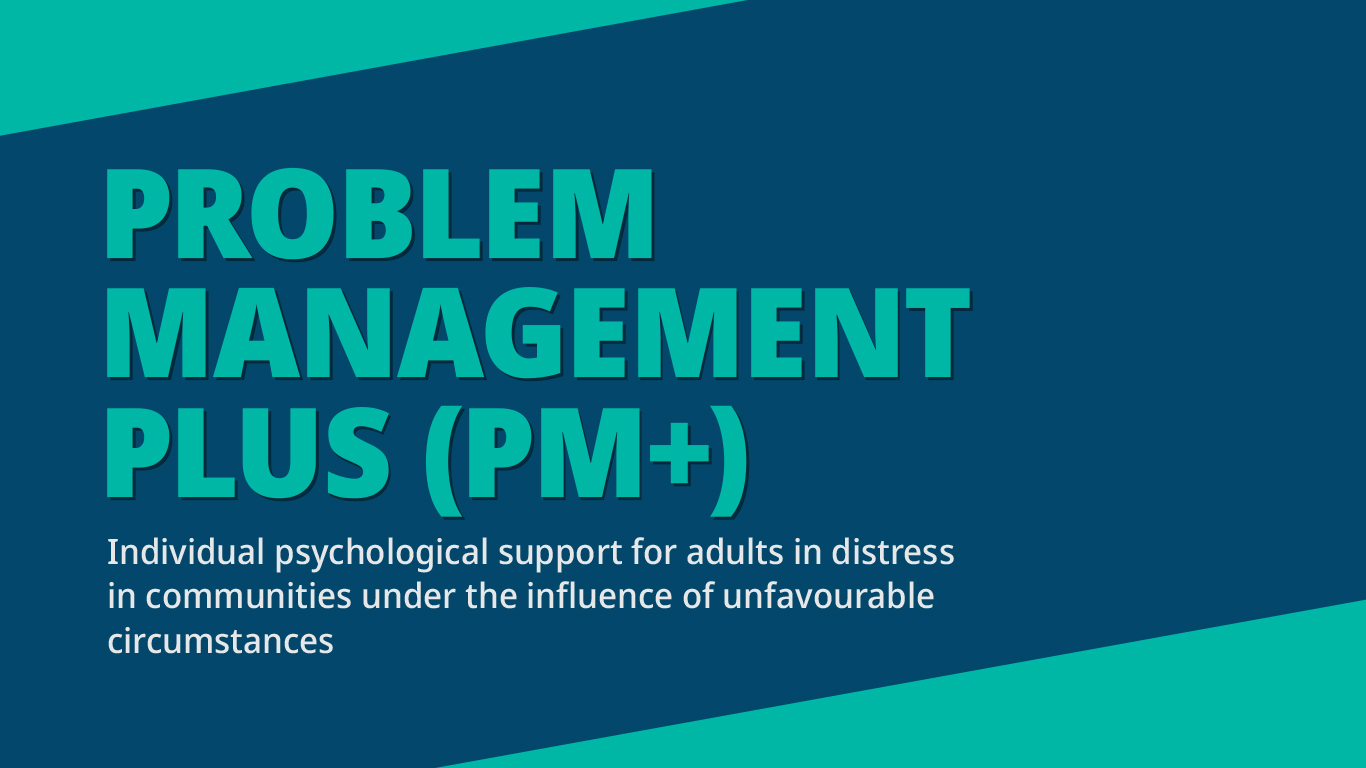The Day Everything Changed
October 10, 2025
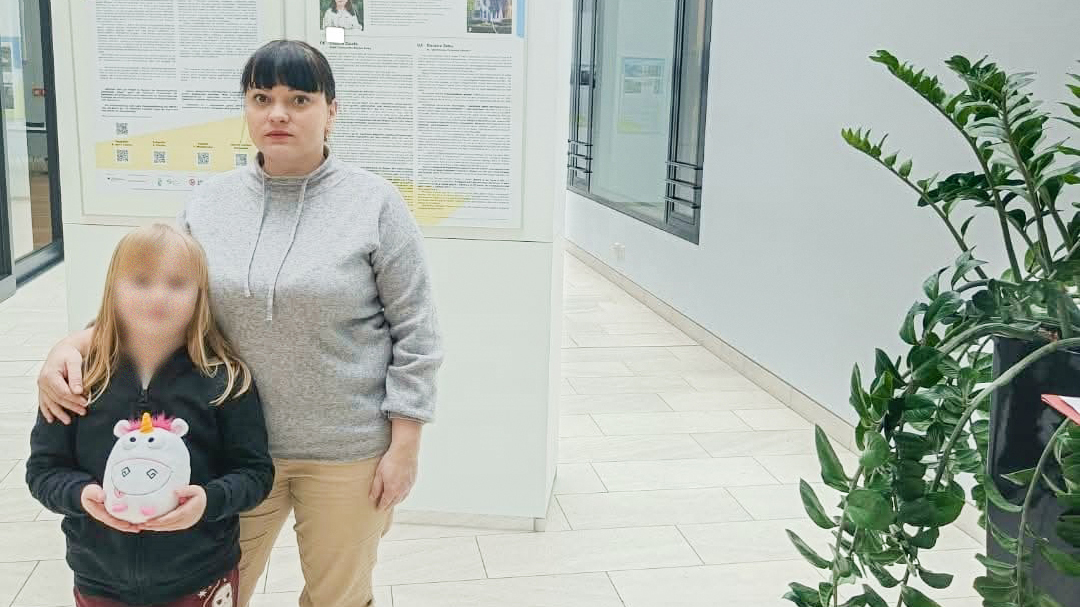
Humanitarian crises strike twice: they destroy the infrastructure of living and at the same time weaken the emotional foundations that support well-being. Mental health remains the great invisible part of daily life in crises marked by violence, loss, or displacement. The impact is profound: a person living with chronic stress has a lower ability to recover, a higher risk of physical complications, and less compliance with medical treatments.
Oksana, Logistics Officer for MdM-Greece in Ukraine, recounts her story after the Russian invasion, inspired by the exhibition “The Day Everything Changed.”
Since 1996, I had been living in my hometown of Trostianets, in the Sumy region of Ukraine. I was a member of my local community council and worked in the family business. We lived and worked in peace.
When Russian tanks invaded Trostianets in February 2022, my daughter was in first grade and I was 34 years old. She had learned the Ukrainian alphabet in 2021, but just six months later she had to learn German as well. We were driven out of our homeland. There was no water, heating, or electricity in the city. Chaos and looting prevailed. This period remains the most difficult of my life. I will never forgive myself for leaving my husband, my parents, and my sister in the occupied city. My husband and the rest of my family couldn’t leave because they were helping other people, but at that point I couldn’t live in fear any longer.
Through the “green corridor,” passing through 11 checkpoints under the threat of Russian soldiers’ machine guns, I left and was saved. In my car were also other children, my daughter’s great-grandmother and great-grandfather. My father gave me the last can of gasoline he had because he was afraid I wouldn’t make it to my destination (gas stations weren’t working here at the time).
I left for Germany. The 2,000-kilometer journey took five days; we couldn’t go any faster because, for the first time in Ukraine, a curfew had been imposed. I am still afraid to leave my family; it is difficult for me to be with new people. War leaves no one as they were before.
Managing one’s mental health is very difficult, especially in the conditions of post-Soviet society. Sometimes it causes shame and stigmatization by society. But I managed to help myself, and I want to help everyone who is going through difficult times now.
In 2023, I returned to the Sumy region. And finally, I feel that I am valuable when I contribute to providing mental health services in the Sumy region together with the Médecins du Monde team. Now, feeling the pain of other people, I actively participate in humanitarian activities, implementing social programs and other activities to support and improve the physical and mental health of people in the Sumy region.
SHARING THIS PAGE,
IS ANOTHER WAY OF BEING INVOLVED

